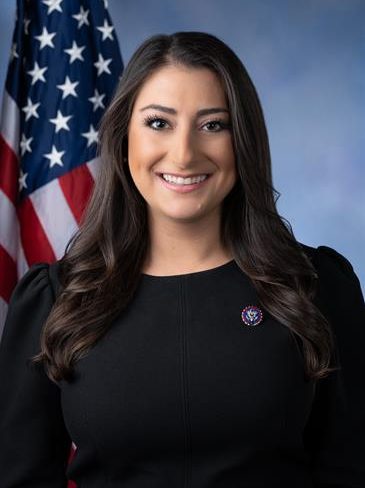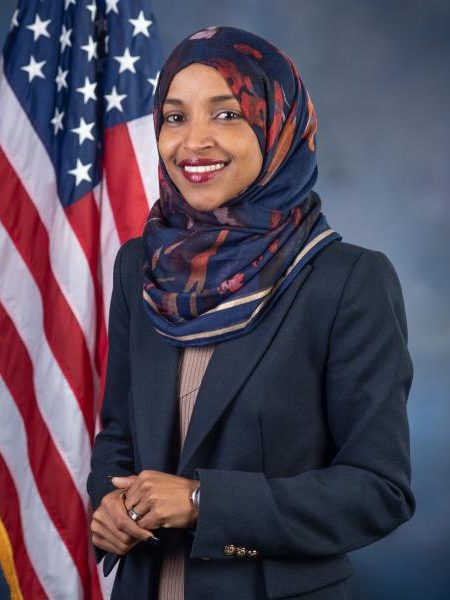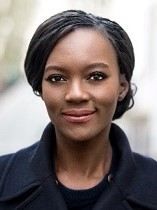Video Highlights
African Youth Series
Event Recap
In celebration of Africa Day 2023, the Africa Center hosted a unique discussion with US Representative Sara Jacobs (D-CA), Ranking member of the House Foreign Affairs Subcommittee on Africa, and US Representative Ilhan Omar (D-MN), the first and only member of Congress born on the African continent. In conversation with Africa Center Senior Director Rama Yade, they provided insights into Congress’s role in shaping US policy toward Africa and the issues that members of Congress are currently focused on.
Additionally, the Africa Center launched its first installment of the “African Youth Series,” featuring personal testimonies from six young Africans. Daniel, Gwladys, Miriam, Mohamed, Sakina, and Tosin provided their vision of the future of the continent and the role of United States engagement in this development.
The role of the US Congress in African affairs
- “Congress does have an important role to play in foreign policy,” including providing oversight of US troops abroad, such as those in Niger, Djibouti, and Kenya, Jacobs explained.
- Omar urged her colleagues to use their convening power to encourage their districts’ businesses to invest in African countries. “The opportunities are endless” for investment that benefits both US businesses and the continent, Omar said.
Resetting the US-Africa partnership
- With the US-Africa Leaders Summit and visits to Africa, the Biden administration is demonstrating that it “recognizes the importance of reengaging with the African continent” following a period of stagnation, Jacobs said. The United States’ current focus is on “partnering with Africans on our shared values and on our shared interests,” she said.
- Omar emphasized the importance of engaging the African diaspora when creating policies toward the continent. The diaspora often influences domestic policies in African countries on issues such as education, countering extremism, and business investment, she explained. US officials need to take the diaspora’s role “more seriously” and ensure that the diaspora is “[in] the driver’s seat” during the policy-making process, she said.
- The United States needs to reimagine how it approaches sending assistance to Africa, both representatives said. The notion that engagement with African countries only revolves around aid, whether it be “pushing for humanitarian assistance or involvement from [the United States] to stop a coup or a civil war,” must end, Omar said. Similarly, Jacobs said that the United States needs to ensure that its humanitarian aid to Africa is “actually feeding into longer-term resilience.”
Geopolitical issues
- Omar said that “the biggest defenders of sovereignty and territorial integrity” are “the heads of African countries.” Memories of the Cold War and the great powers’ “imperialistic mentality” has made African countries wary of being used as pawns, she explained. As they figure out how to devise foreign policy in the face of Russia’s war in Ukraine, African countries must “think about what is in their best interest,” whether it be alignment with either the West or Russia or nonalignment, she said.
- A “key lesson from the Cold War is that supporting authoritarian actors for short-term alignment [with the United States] or influence has really harmful impacts,” Jacobs said. In countries such as Chad, Angola, and the Democratic Republic of Congo, “US efforts to counter the Soviet Union and its proxies actually caused backsliding [and] violence,” Jacobs explained, and thus in those countries, “their populations and governments are still suspicious” of the United States. Since Africa now has the youngest population in the world, “the decisions [the United States makes] now are going to have really long-term consequences.”
Alexandra Gorman is a Young Global Professional at the Africa Center.
Event Preview
Africa Day was first launched on May 25, 1963 by the Organization of African Unity, the predecessor to the African Union. It celebrates the founding of this organization, which was dedicated to the cause of Pan-Africanism and liberation from colonial governments. The annual celebration commemorates the challenges the African nations have overcome in defining their own sovereignty, celebrates the progress the people of the continent have achieved, and calls attention to the remaining efforts needed to secure equal opportunities and development for Africa.
For Africa Day 2023, Congresswoman Sara Jacobs and Congresswoman Ilhan Omar join the Africa Center’s Senior Director, Rama Yade, to discuss their visions and views on the current state of US-Africa relations and US policy towards Africa. This event serves as an opportunity to follow up on the recent US- Africa Leaders Summit and highlight the role that Congress plays in determining US-Africa policy.
Featuring

Congresswoman Sara Jacobs
California’s 51st Congressional District

Congresswoman Ilhan Omar
Minnesota’s 5th Congressional District
Agenda
Welcoming remarks
African Youth Speaks
Testimonies from young people across the continent
A conversation with Rep. Ilhan Omar and Rep. Sara Jacobs
Representative Ilhan Omar, Minnesota’s 5th Congressional District
Representative Sara Jacobs, California’s 51st Congressional District
Rama Yade, Senior Director of the Africa Center

The Africa Center works to promote dynamic geopolitical partnerships with African states and to redirect US and European policy priorities toward strengthening security and bolstering economic growth and prosperity on the continent.
